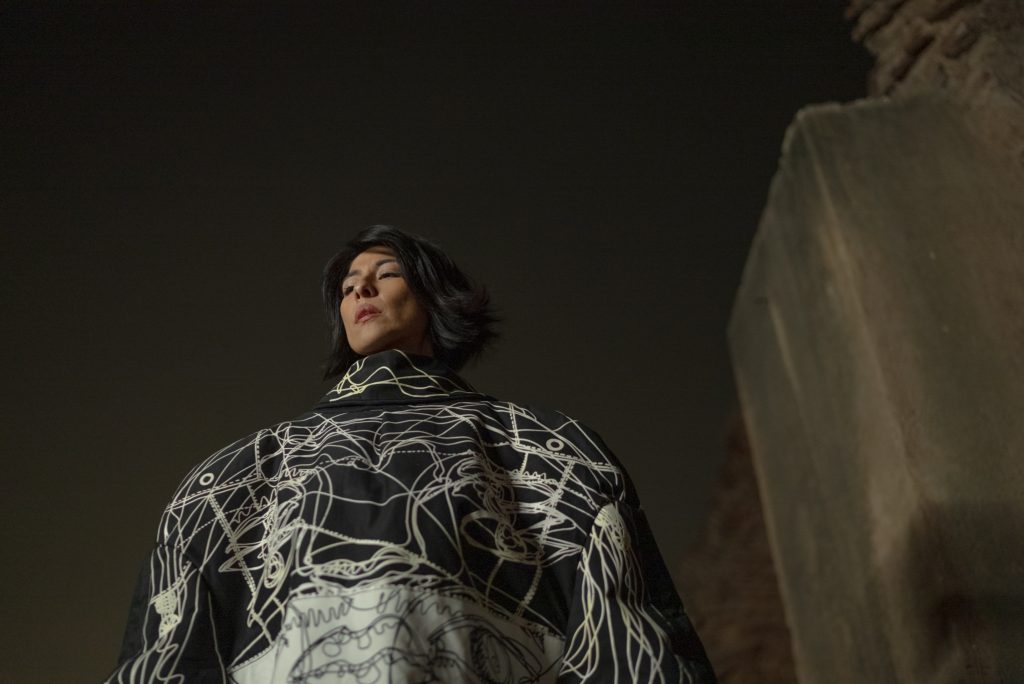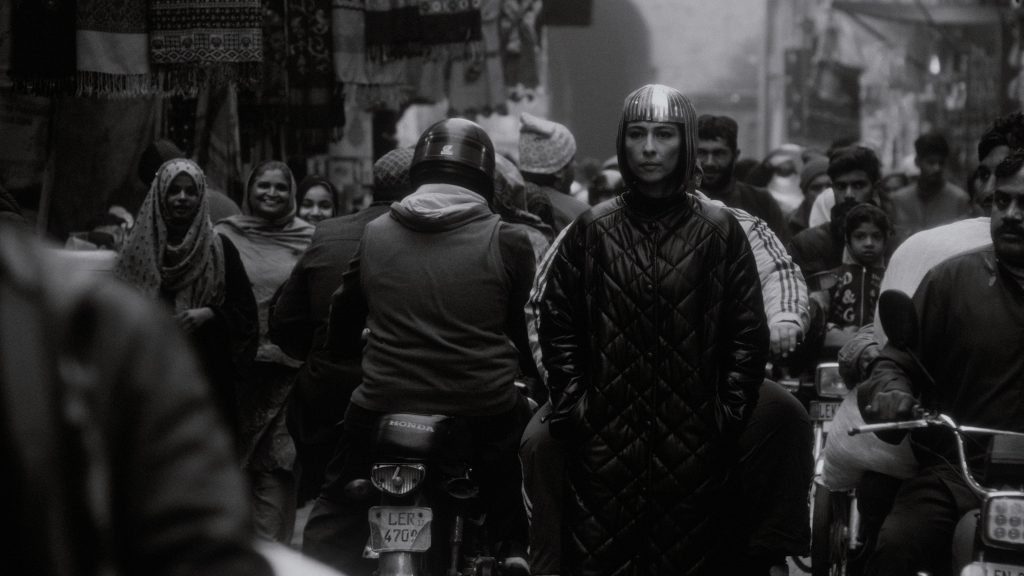The raw hum of Meesha Shafi’s voice stirred Cue Cinemas to life as she unveiled Khilnay Ko, her debut album — an intimate and powerful tapestry of 11 tracks, each echoing five years of her lived experience, survival, and healing. Six tracks from the album lit up the screen, cast before a house full of Lahore’s artists, musicians, and cultural voices. From the first note to the last frame, the room held its breath, suspended in a dense, collective stillness. What filled the silence was the blooming of female rage and pain, now transfigured into art, raw, unflinching, and achingly powerful.
“Khilnay Ko Roshni Laazim, Beej Magar Andhaira Maangay”
This single line becomes the epicentre of the album’s emotional and philosophical gravity. Khilnay Ko doesn’t just offer music—it offers a quiet calling, a gentle yet unflinching recognition of healing. It reminds us that while growth and blooming require light, none of it begins until the seed is willing to rest in, and embrace, the dark. That paradox—of needing both light and dark—is the pulse of the track. Awais Gohar paints that duality in light and shade. His visuals don’t just accompany Khilnay Ko; they echo it, illustrating the contrast and coexistence of darkness and light, not at their opposition, but at their intersection. This interplay forms the emotional terrain of the album’s conversation with depression and healing, all while keeping it profoundly personal to Meesha’s experience with it.

Awais Gohar’s visuals carried the weight of deeply responsible emotion — the kind that demands care, precision, and reverence. Each frame was abstract, hauntingly beautiful, and visually arresting — but never distant. Despite their scale and cinematic power, not a single shot felt impersonal. Every second of the screening felt like an echo of something lived. One visualizer in particular constructed a time-lapse stitched with real fragments of Meesha’s childhood — and her brother Faris Shafi’s — cradled in the arms of their mother, Saba Hameed. Pulled from the archive, those tender visuals didn’t just accompany the song — they answered it. They mirrored its ache, its nostalgia, its search. It was powerful. It was deeply personal. And it struck exactly where it needed to.
“We saw the pain, the transformation, the healing, but where is the anger?”
It was a question posed with careful precision by Sarmad Khoosat, who moderated the evening’s conversation — one that lingered in the room long after it was asked. Why didn’t Khilnay Ko sound angry? Why didn’t fury make its way into the album? Meesha’s response was unflinchingly honest: when you are battling depression, sometimes you’re too depleted to reach for rage. Drawing from the contours of her very public experience, she offered a quiet provocation: What does it mean when survivors are too exhausted to be angry? When healing demands so much that even justified fury must be set down? The album doesn’t deny that anger — it simply reveals how heavy it can be to carry, and how often it goes unspoken in the process of survival. What was deeply refreshing — and almost quietly invigorating — was how Khilnay Ko held its emotional density. Though the subject matter was layered and weighty, the coded intensity of the lyrics, the powerful abstraction of the visuals, and the emotional gravity of each track didn’t weigh the album down. The music didn’t sink — it breathed. It sounded like survival. There was vitality even in sorrow, clarity within the fog. That refusal to let darkness collapse into despair is where Abdullah Siddiqui’s production shined — deliberate, future-facing, and deeply humane.
“Writing these songs was like journaling for me”
Meesha shared in conversation with Sarmad Khoosat — a single sentence that unravels the entire emotional architecture of Khilnay Ko. The album doesn’t just sound personal; it sounds like déjà vu. It looks like memory. It feels like something the entire country has witnessed — because we did. We all witnessed, in real time, what Meesha was put through. A woman who carved space not just for courage in music, but for a female voice to exist in its full power, complexity and truth, dragged through one of the most public confrontations with power and structure in recent memory. And so, when you listen to Khilnay Ko, when you sit with those lyrics, it’s impossible not to hear the echo of that lived truth. One song in particular, Farar, stopped the room cold. “Khabar uri thi kay hum farar thay,” she sang. Now sitting in an auditorium in central Lahore — the city she belongs to, the city she fought in, the city she survived — Meesha Shafi, sitting centre stage, handing over her last five years, now frozen into Khilnay Ko. Yet still, “Khabar uri thi kay hum farar thay”










What do you think?
You must be logged in to post a comment.